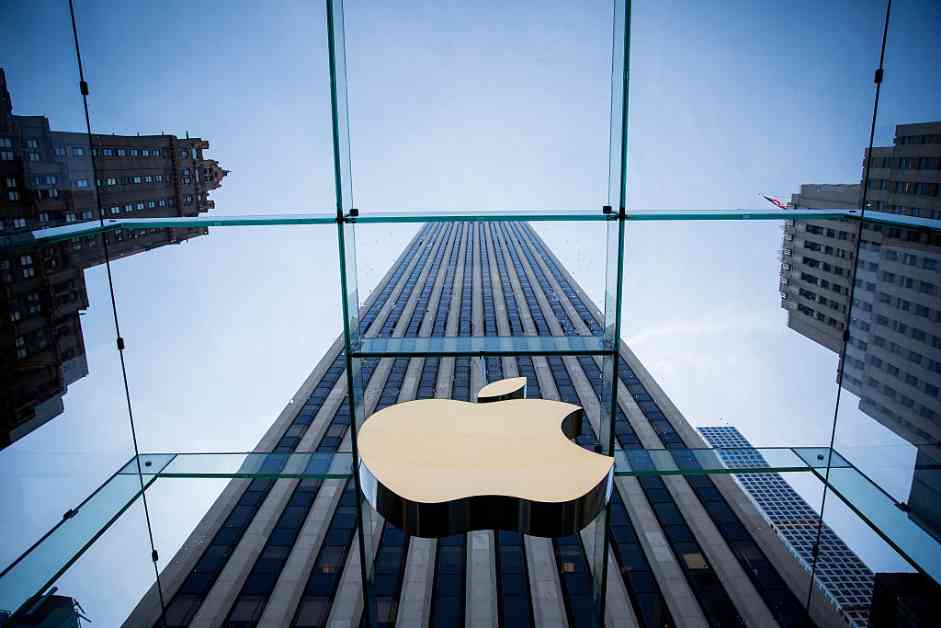The European Court of Justice (CJEU) has recently made a decision that has significant implications for one of the world’s largest technology companies, Apple. The ruling requires Ireland to recover more than 13 billion euros (£11 billion) in back taxes from Apple, following a 2016 European Commission ruling that Ireland had provided the tech giant with undue tax benefits.
Background of the Case
The case dates back to 2016 when the European Commission ruled that Ireland had given illegal tax benefits to Apple, allowing the company to pay substantially less tax than other businesses over many years. This decision was based on tax rulings issued by Ireland to Apple in 1991 and 2007, which were found to artificially lower the tax paid by the company in a way that did not correspond to economic reality. The investigation revealed that Apple had paid an effective corporate tax rate of just 1% on its European profits in 2003, which had dropped to a mere 0.005% by 2014.
The CJEU’s Decision
Ireland and Apple had contested the European Commission’s ruling, with the General Court of the European Union annulling the decision in July 2020. However, the European Commission subsequently appealed against this decision to the CJEU, arguing that the lower court had made legal errors. The CJEU agreed with the Commission, stating that the General Court had “erred” in its decision and ordering that the judgment be set aside, thereby restoring the Commission’s original ruling. This decision has now paved the way for Ireland to recover the 13 billion euros in back taxes from Apple.
Controversy and Reactions
The Irish Government has long defended its tax treatment of Apple, while the tech giant itself has maintained that it received no state aid. Apple’s CEO, Tim Cook, had previously criticized the EU’s findings as “political crap.” The company has argued that it pays all taxes owed wherever it operates and that there was no special tax deal in place. Additionally, Apple has stated that its income was already subject to taxes in the US, as required by international tax law.
On the other hand, the European Commission has been firm in its stance that Ireland’s tax rulings to Apple constituted illegal state aid. Competition commissioner Margrethe Vestager emphasized that the tax benefits granted to Apple by Ireland enabled the company to avoid paying its fair share of taxes for many years.
Implications for Apple and Ireland
The CJEU’s decision has significant implications for both Apple and Ireland. For Apple, it means that the tech giant will have to pay back the 13 billion euros in back taxes to Ireland. This could have a financial impact on the company, although Apple has stated that it will comply with the ruling. For Ireland, the decision raises questions about its tax practices and treatment of multinational corporations. The Irish Government has defended its 12.5% corporation tax rate, arguing that Europe should not dictate tax laws or enforce retrospective taxes decades later.
Future of Taxation in Europe
The case of Apple’s tax dealings in Ireland sheds light on the broader issue of taxation in Europe. The European Commission has been cracking down on what it perceives as illegal state aid to multinational corporations, aiming to ensure that all companies pay their fair share of taxes. The case also highlights the complexities of international tax laws and the challenges of regulating the tax practices of large multinational companies.
Overall, the CJEU’s ruling on the recovery of 13 billion euros in back taxes from Apple is a significant development in the ongoing debate over taxation and state aid in Europe. It underscores the importance of fair taxation and compliance with international tax laws for all companies operating within the EU. As the case continues to unfold, it will be interesting to see how Apple, Ireland, and the European Commission navigate these complex tax issues and what implications this ruling may have for future tax practices in Europe.
In Conclusion
The CJEU’s decision to uphold the European Commission’s ruling requiring Ireland to recover 13 billion euros in back taxes from Apple has far-reaching implications for both the tech giant and the Irish Government. This case highlights the complexities of international tax laws and the challenges of regulating the tax practices of multinational corporations. As the debate over taxation and state aid continues in Europe, it will be crucial for all parties involved to adhere to fair tax practices and comply with legal regulations to ensure a level playing field for all businesses.












